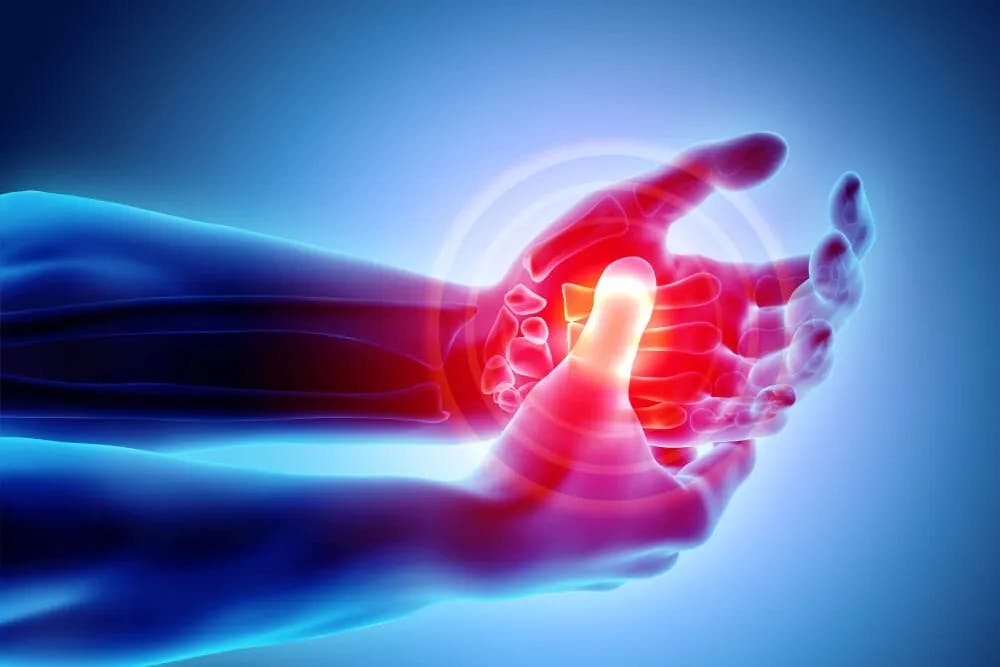.97077bf4.webp&w=640&q=75)
Neuropathic Pain

Neuropathic pain is a type of chronic pain that occurs when the nerves that transmit signals from the body to the brain become damaged or diseased. This can result in a range of symptoms, including burning, tingling, numbness, and sensitivity to touch.At our neurology clinic, our expert team is skilled in diagnosing and treating neuropathic pain using the latest techniques and technologies. We offer personalized care plans that are tailored to each patient's unique needs, ensuring that they receive the relief they need to live a more comfortable and fulfilling life.Our at-home and telehealth services make it easy for patients to access our care from the comfort of their own homes, eliminating the need for long, tiring trips to the clinic. By booking an appointment online, patients can connect with our team of experienced neurologists and start their journey towards relief from neuropathic pain.Don't let chronic pain control your life. Take control and book an appointment with our team today. Our expert care and cutting-edge treatments will help you reclaim your quality of life and live pain-free.
Frequently Asked Questions
What is neuropathic pain?
Neuropathic pain is a chronic condition that is caused by damage or dysfunction to the nerves in the body. This type of pain is often described as burning, shooting, or tingling sensations that can be severe and debilitating.
What are the symptoms of neuropathic pain?
The symptoms of Neuropathic pain can vary depending on the cause and location of the nerve damage. Common symptoms of neuropathic pain may include:
Sensations of burning, shooting, or tingling
Numbness or weakness in the affected area
Changes in skin temperature or color
Increased sensitivity to touch or temperature changes
Changes in the way the skin feels, such as a pins and needles sensation
How do you know if you have neuropathic pain?
A neurologist will typically diagnose neuropathic pain through a physical examination, medical history, and additional tests such as imaging studies or nerve function tests.
What are the most common treatments for neuropathic pain?
Treatment for neuropathic pain may include medications, nerve blocks, physical therapy, or other interventions. Some common medications for neuropathic pain include antidepressants, anticonvulsants, and pain relievers.
What are the potential causes of neuropathic pain?
There are many potential causes of neuropathic pain, including:
Diabetes
Herpes zoster (shingles)
Chronic alcohol use
Nutritional deficiencies
Multiple Sclerosis
Nerve damage from surgery or injury
What are some common risk factors for neuropathic pain?
Some common risk factors for neuropathic pain include:
Age – neuropathic pain is more common in older adults
Diabetes – neuropathy is a common complication of diabetes
Alcohol – chronic alcohol abuse can cause nerve damage
Vitamin deficiencies – deficiencies in vitamins B1, B6, and B12 can cause neuropathy
Trauma or injury – nerve damage from surgery or injury can lead to neuropathic pain
Can neuropathic pain be treated with over-the-counter pain relievers?
Over-the-counter pain relievers, such as ibuprofen or acetaminophen, may provide temporary relief for neuropathic pain. However, these medications are not as effective as the specific neuropathic pain killers and may not be effective in treating the underlying cause of the pain and should be used with caution. It is important to consult with a healthcare provider before using over-the-counter pain relievers for neuropathic pain.
Can neuropathic pain be cured?
While there is no cure for neuropathic pain, it can be managed with proper treatment and it may resolve. The goal of treatment is to reduce pain and improve function, and may include medications, nerve blocks, physical therapy, or other interventions.
Is neuropathic pain more common in men or women?
There is no significant difference in the prevalence of neuropathic pain between men and women. However, some research suggests that women may be more likely to experience chronic pain conditions, including neuropathic pain.
What is the long-term outlook for individuals with neuropathic pain?
The long-term outlook for individuals with neuropathic pain varies depending on the underlying cause of the pain and the effectiveness of treatment. In some cases, neuropathic pain may improve or resolve with treatment, while in others it may persist and require ongoing management. It is important for individuals with neuropathic pain to work closely with their healthcare provider to develop a personalized treatment plan.